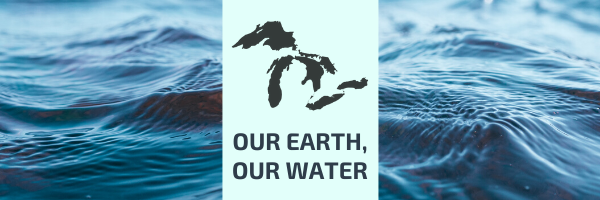
Many of us take the water flowing from our taps at home for granted. The average American uses 82 gallons of water at home per day. Living in the Great Lakes region, it’s hard to imagine life without water.
But many people in Great Lakes communities don’t have access to, or can’t afford, safe, clean water at home. How is this possible?
Costs for residential water and sewer service are going up, forcing people to make economic trade-offs to pay water and sewer bills. And water is contaminated in many areas — from lead-contaminated drinking water to PFAS contaminated ground water. No one should have to choose between food and clean water.
Access to clean water is more important than ever. Covid-19 has reinforced the deep connection between water and public health. Hand-washing is vital public health advice in this crisis, but you can’t wash your hands, or prevent the spread of this virus, without access to water.
Earth Week Challenge: Know Your H20
How much water do you or your family use? Can you imagine what it would be like to be without clean water?
Take our Know Your H20 challenge. Track your water consumption for one day with our water log. And let us know what you learn.
For the challenge, keep a log of how much water your household uses — download our easy-to-use spreadsheet.
Mark each time you turn on the tap or use water in your home. Record it all…tooth brushing, washing dishes or running the dishwasher, laundry, showers, toilet flushes, handwashing, using water for drinking or cooking, etc.
The spreadsheet will automatically tally up how many gallons you use.
Email us your total and share your thoughts by answering these discussion questions or having a family conversation about the challenge:
- What does your daily water use add up to?
- Were you surprised by the final number?
- What would your day be like without clean water from the tap?
- What are easy steps you can take to conserve water?
- How can you help ensure others have access to safe, clean water?
